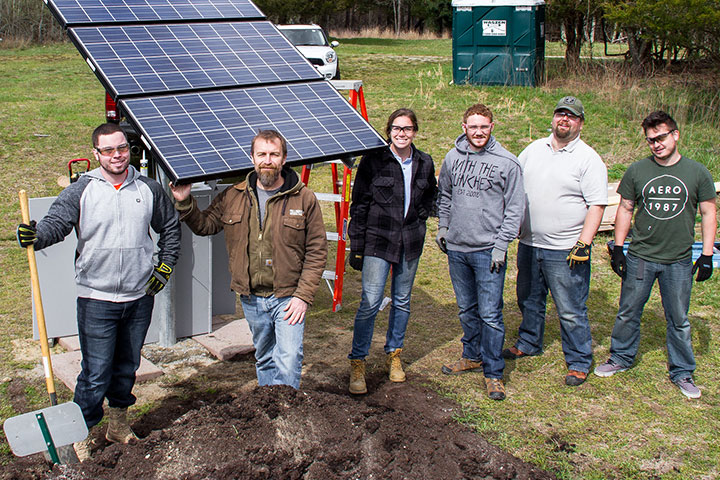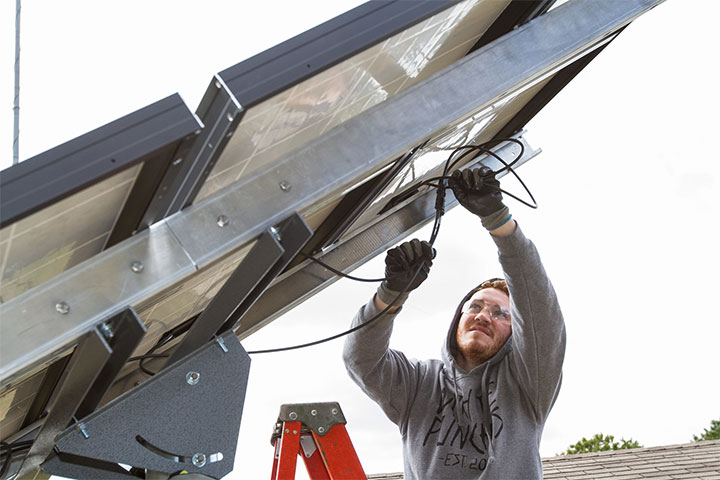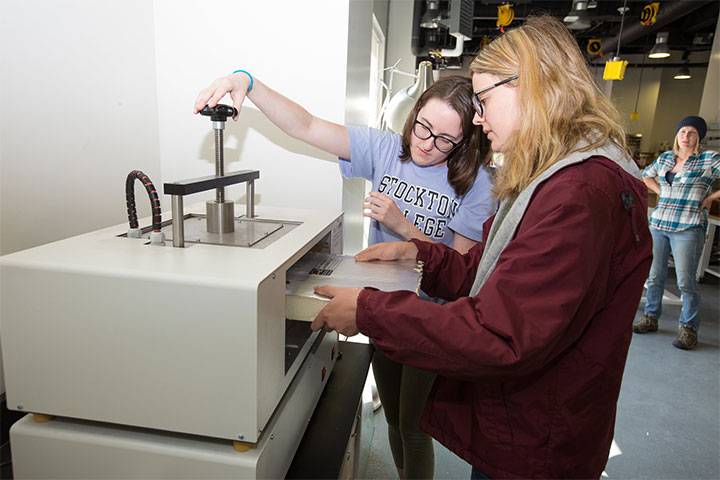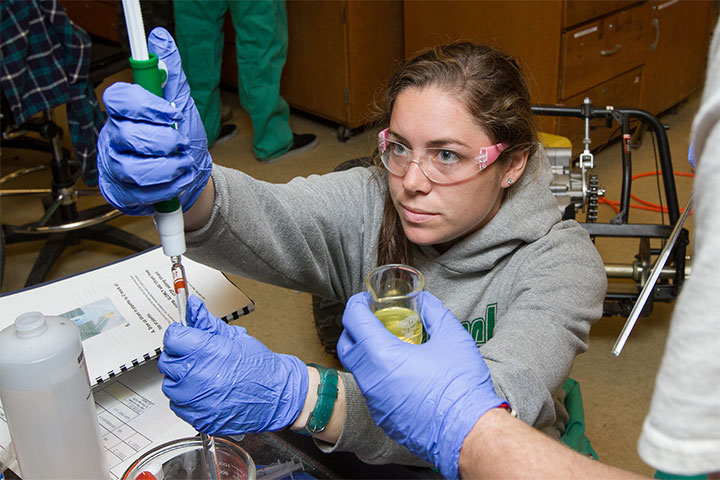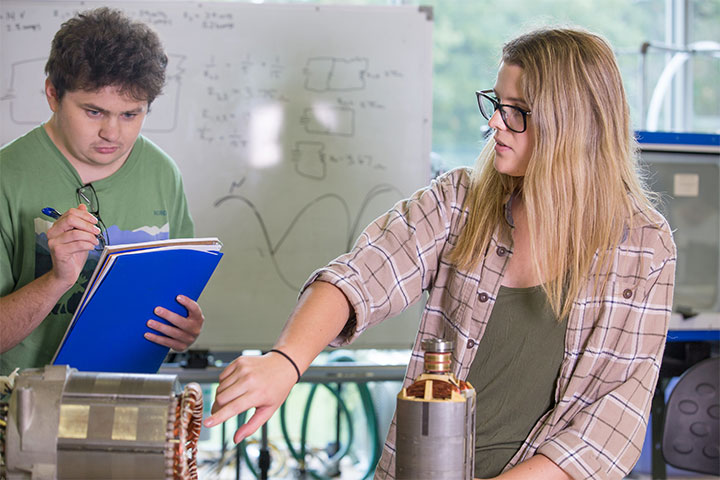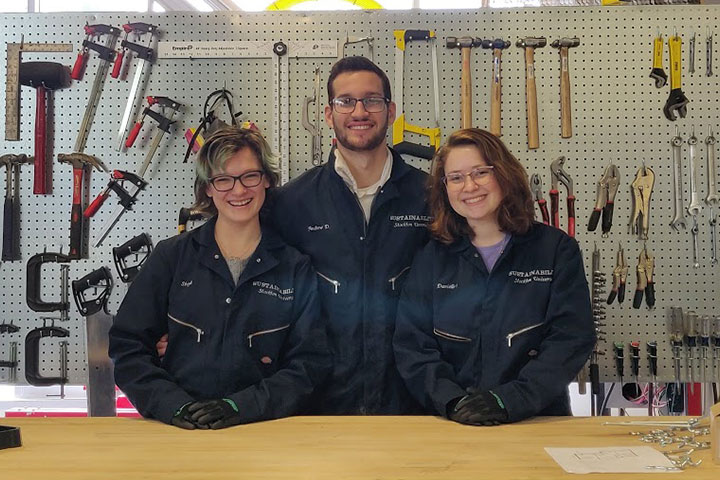Sustainability - Energy Concentration
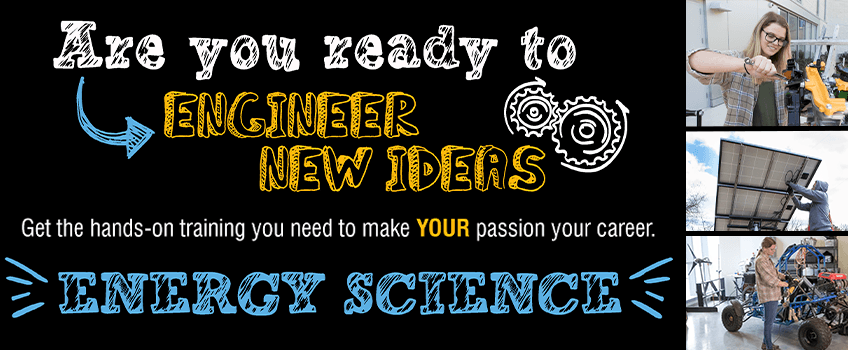
Student Video Testimonials
What is the Energy Concentration?
It is clear that we cannot continue to generate and use energy as we have in the past. The long-term effects of inefficient and dirty power production is stressing our planet and polluting our communities. And our wasteful use of energy in outdated buildings, outmoded transportation, and inefficient energy systems can no longer be justified. Students in the energy concentration are trained to define a new path forward, toward efficient, high performance energy systems, new building innovations, new design possibilities, and creative transportation alternatives that promise a cleaner, healthier, and prosperous future.
Students in the Energy concentration develop an expertise in:
RENEWABLE ENERGY such as solar, wind, geothermal, and other clean power options
BUILDING ENERGY SYSTEMS, with training in energy audits, infrared building inspections, modeling of building energy performance, and other professional skills.
GREEN DESIGN with a focus on design of zero-energy and high-performance buildings, renewable materials, and alternative energy systems.
What sorts of courses do Energy Students Take?
Like all Sustainability students, they begin with the basics, including courses in ecology, policy and law, ecological economics, and the sciences. Because this is a technical field, Energy students also need to complete Calculus I and II and Physics I and II.
Then Energy students focus their studies in the engineering and analysis of renewable energy and green design, including courses like Sustainable Technology (SUST 3301), Sustainable Design (SUST 4720), Energy Management (SUST 3312), as well as a lot of hands-on training and laboratory experience in building analysis, advanced inspection techniques, systems analysis, and energy auditing all offered in an advanced Energy Practicum (SUST 3311). Then, students can pick from a number of electives, like Green Vehicle Technology (SUST 4710) , Geographic Information Systems (ENVL 3302), Energy Planning (ENVL 3443), or courses in Applied Physics, such as circuits and electronics.
Before they graduate, energy students complete advanced applied projects in our energy laboratory or in the field, as well as at least one internship with an engineering firm, energy company, power company, or public agency in the energy field. They also get advanced training in professional analysis and writing in Senior Synthesis (SUST 4600) before they graduate. Review the full curriculum worksheet for the Energy Concentration to learn more.
How long will it take to complete a concentration in Energy?
That depends on your preparation. If you come to Stockton as a freshman with a solid grade in high school Pre-Calculus and some science courses, you can complete the degree in four years with no trouble. But, if your math background isn’t quite as solid, and you haven’t yet taken science course, that doesn’t mean a career in Energy isn’t right for you! It just means you may need to take a bit more time to get up so speed by taking algebra and Pre-calculus. If you’re transferring from community college, and you’ve completed calculus, physics, biology, and chemistry, you should be able to graduate in two years. If you haven’t yet taken the core science courses, it may take a bit longer. That may mean a bit more effort, or a couple of summer course. But, either way, we’ll get you where you need to be!
What kind of jobs can an Energy concentration get you?
Many Energy graduates work with engineering firms as systems analyst, technicians, or field engineers. They work with teams that help upgrade buildings, making them greener and more efficient, or addressing public health threats such as indoor air quality. Sometimes, they focus on improving the green features of buildings, and helping achieve certification as a green building, such as the US Green Building Council’s LEED certification, Passive House certification or the US Energy Star Rating.
Many graduates also work with design firms as Green Building Advisors or Design Consultants. Along with Architects and engineers, they help create innovative new homes and commercial buildings that require less energy, use greener materials, and provide healthier spaces to live and work.
A number of our graduates work in the energy field, helping to manage the energy grid, design and build commercial scale solar arrays, or improve the efficiency of energy generation.
In fact, there are more options than we can list. Some of our graduates find careers in building construction and inspection. And others choose to define their own path, with careers in environmental advocacy, energy education, community organizing, and a great many other fields.
Some graduates choose to continue their education, pursuing masters degrees and Ph.D.s in Physics, Chemistry, Engineering, Architecture and Design.
What are the career prospects in the Energy field?
Careers options in energy and technology fields are excellent! Employers are anxious to hire graduates with technical education and hands-on training in energy systems and design. Our best students often have job offers before they graduate. And several engineering and design firms actively seek our graduates due to their unique combination of skills and training. Companies like the interdisciplinary training that allows our graduates to have a firm knowledge of science, policy, economics and ecology, as well as an expertise and hands-on training in energy. Starting salaried tend to be higher than the average for college graduates, and the potential for growth is strong, as renewable energy and energy efficiency technology expand regionally and nationally.
Additional Information
For more information on the Energy concentration and the sorts of careers available to energy professionals, contact:
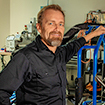
Dr. Patrick R. Hossay
Professor of Sustainability
HSC - 101 | 609-652-4303
Patrick.Hossay@stockton.edu
